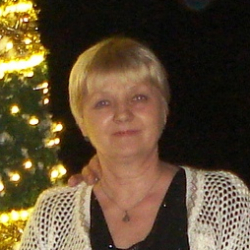
Welcome to London! Have you ever walked in London’s parks?

I’M GLAD TO SEE YOU!

Up, down, up, down,
Which is the way
To London town?
Where? Where?
Up in the air,
Close your eyes –
And you are there!

WHAT IS THE THEME OF OUR LESSON? WHAT IS THE AIM OF THE Lesson?

- Tick-tock, tick-tock,
This is Big Ben.
Big Ben is a clock.
Day and night
With all its might
Big Ben, the clock,
Says: “Tick-tock”.

- museum
- abbey
- monument
- theatre
- stadium
- parlament
- cinema
- gallery
- square
- umsemu
- bebay
- numontme
- retteha
- distamu
- liaparmetn
- nemaic
- legalry
- aresqu

Can you guess the famous place of London?
- Westminster Abbey
- The House of Parliament
- Big Ben
- The Tower of London

Can you guess the famous place of London?
- Buckingham Palace
- Westminster Abbey
- St. Paul’s Cathedral
- The British Museum

Can you guess the famous place of London?
1. Trafalgar Square
2. Buckingham Palace
3. Westminster Abbey
4.The British Museum

Can you guess the famous place of London?
- Big Ben
- The Tower of London
- The House of Parliament
- Buckingham Palace

Can you guess the famous place of London?
- The British Museum
- Westminster Abbey
- The House of Parliament
- Trafalgar Square

Can you guess the famous place of London?
- Trafalgar Square
- The London Eye
- Tower Bridge
- Piccadilly

Can you guess the famous place of London?
- Big Ben
- The Tower of London
- Tower Bridge
- Westminster Bridge

Can you guess the famous place of London?
1.Trafalgar Square
2. Buckingham Palace
3. Big Ben
4.The British Museum

LISTENING
Present Perfect
have/ has + V 3
already, just recently, lately, never, ever, yet
I have already been to London.
But I haven’t been to Liverpool yet.
Have you ever been to Scotland?
Yes, I have./ No, I haven't

Describe what has happened. Use: just, already, never.
Bess ( have) breakfast.

Describe what has happened. Use: just, already, never.
Mary ( write)
a letter to her grandma.

Describe what has happened. Use: just, already, never.
Dan ( win) the competition.

Describe what has happened. Use: just, already, never.
Children
( clean) their room.

Describe what has happened. Use: just, already, never.
Bob and Susan
( make) a snowman.

Describe what has happened. Use: just, already, never .
Alice ( buy) some souvenirs.

Describe what has happened. Use: just, already, recently, never.
Ann ( finish) the test.

Describe what has happened. Use: just, already, recently, never.
The tourist
( take) a photo of the monument.

PHONICS
Ex 115 p. 120

WORD CONSTRUCTIONS
Ex 116 p. 120

- London is rich in museums, parks and bridges.
2. I am proud of my family.
3. Hyde Park is famous for its
outdoors activities .

Relaxation Break
“ HEAD AND SHOULDERS”

LEARNING STRATEGY
READING FOR MAIN IDEA
Чтобы понять основную мысль, идею текста нужно
внимательно прочитать первый и последний абзацы текста, так как именно там содержится основная мысль; не пытаться понять каждое слово в содержании прочитанного.
Тебе помогут также иллюстрации и вопросы к тексту.

READING FOR DETAILS
При выполнении задания с целью полностью и детально понять смысл текста, требуется умение
1)догадаться о значении незнакомых слов и словосочетаний в контексте,
2)внимательно отнестись к структурно- логическим связям текста (плану текста)
Здесь требуется понимание всех основных и второстепенных фактов, содержащихся в тексте

Hyde Park

St. James’s Park

Kensington Gardens


Regent’s Park

Make a Dialogue
- -Hello! - Good morning!
- - How are you?- I’m fine. Thank you.
- - Have you ever been to the…Park? - Yes, I have./ No, I haven’t.
- - Did you like this park? - Yes, II did/No, I didn’t.
- What can you do in the park? - I can ride a bike …
- - Good bye - Good bye.

Рефлексия
- На уроке я работал активно \ пассивно.
- Своей работой на уроке я доволен \ не доволен.
- Урок показался мне коротким \ длинным.
- Материал урока мне был понятен \ не понятен, полезен \ бесполезен.





















































